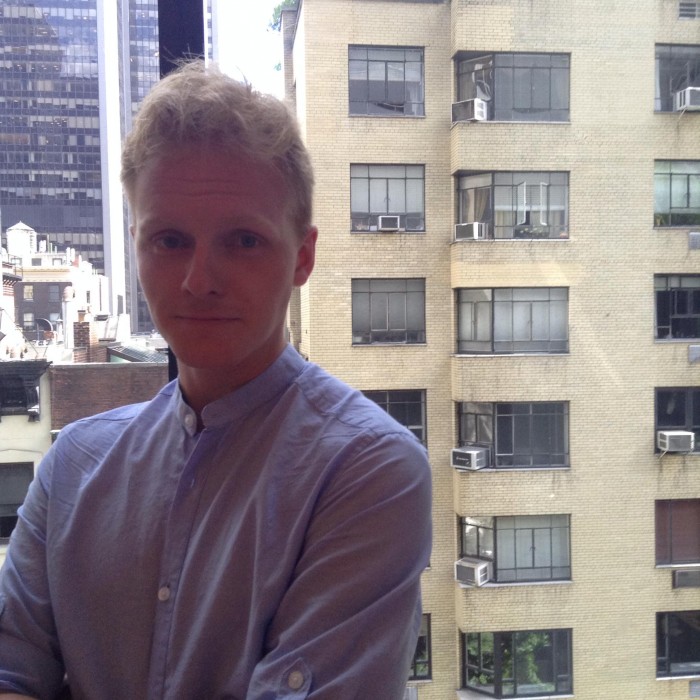As a poet, novelist, and aspiring academic, McGill student James Dunnigan lives his life in a cloud of creative energy. While finishing a degree in Honours English (with a graduate essay on Virgil and Wordsworth’s pastoral poetry) Dunnigan reads and writes constantly while keeping up with Montreal’s thriving literary scene.
Born and raised in Montreal, Dunnigan considers his Hungarian grandparents to be very influential in his passion for writing. His grandfather was a surgeon in Hungary during the Hungarian revolution, and also dabbled in painting and prose. The huge collective libraries of both sets of grandparents helped illustrate to Dunnigan the massive wealth of knowledge contained in the written word.
“Writing comes from trying to be like the people I’ve admired the most,” Dunnigan said. “Reading and writing are something [my grandparents] are both involved in.”
While Dunnigan’s interests are grounded in literary classics of all kinds, his writing style as well as his interests are always changing.
“That’s what originality is,” he said. “Your intentions for a story change because your world changes. Writing must have that quality. The intention you have will be altered.”
Dunnigan’s view is unexpected; considering his deep interest in the classics, his approach to writing is surprisingly fluid.
“Part of my methodological process is always reading as well as writing. The writing process is very loose. An idea could come anywhere,” Dunnigan said.
One story, Open Bay, has an astonishingly different style from an earlier story, Arabesque. Dunnigan attributes this to an editing crunch.
“Open Bay was originally three times as long, and in cutting it down to reach the word limit I began cutting out grammatical units of sentences, which ultimately made it sound more like a little kid,” he said.
The protagonist of Open Bay, a young girl, has little in common with the author. Arabesque, however, could be autobiographical: The protagonist is a young man, having a summer afternoon drink on Rue Sainte Catherine. Dunnigan said that it’s not specifically autobiographical, rather that “elements of character and setting are combinations of elements of real life, rearranged to create a story.”
The protagonist of Arabesque emphasizes his love for author James Joyce, who was Dunnigan’s favorite author at the time. Now Dunnigan names Virgil, Faulkner, and Balzac to be his primary influences, but like his style, James’ favourite authors are always changing.
“Faulkner and Balzac reinvent the novel every time they write it, I want to do that with my stories,” Dunnigan said. “Each story [I write] makes a different experiment, and a different experience. I want to escape narrowing down of styles. I’d rather be diverse, and of course good at all styles. That’s the hard part.”
Dunnigan’s long-standing project is a novel, titled The Inflections of Wilfrid Ylle. Although complete, he says it needs a lot of revision.
“Perhaps I tried too hard to reinvent the novel,” Dunnigan said, “The narrative structure became too complicated. Every piece of narrative comes from conversation. It’s an investigation into who this man was—perhaps relating somewhat autobiographically to a certain grandfather figure.”
As a native Montrealer, Dunnigan is used to living within French and English worlds simultaneously, which comes through in his interests as well as his academic work- he will be graduating this year with a minor in French. On translation, James says that if a translator is going to rewrite a piece, he may as well totally rework it. There is merit to translation, but Dunnigan tries to avoid it as much as possible.
“I would never read Flaubert in English,” he said.
While fragments of stories are always constantly popping up around him, for Dunnigan it’s all about the endgame.
Dunnigan explained, “the most rewarding thing about writing is finishing. You can’t finish many other things in life as satisfactory as a story. You can’t always choose where to put that final period.”
Wherever that final period may be, Montreal should keep an eye out for James Dunnigan’s next work.








